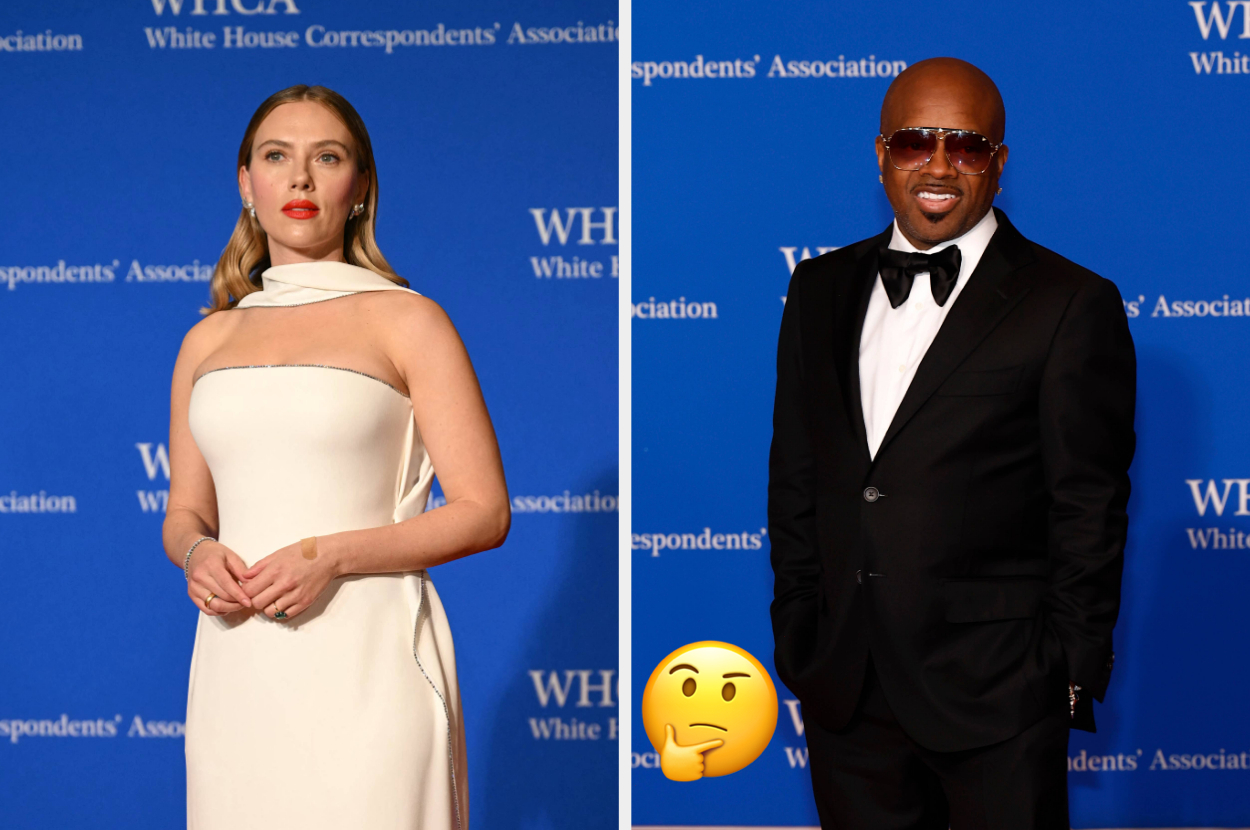
White House Correspondents dinner – The White House Correspondents’ Dinner, a prestigious annual event, has captivated the attention of the media, political elite, and the public for decades. This gathering serves as a platform for camaraderie, entertainment, and critical reflection on the relationship between the press and the White House.
Throughout its evolution, the dinner has witnessed memorable moments, including witty speeches from presidents and thought-provoking commentary from journalists. Its impact extends beyond the ballroom, shaping public perception and influencing political narratives.
Historical Context of the White House Correspondents Dinner
The White House Correspondents’ Dinner (WHCD) has evolved into a significant event in Washington, D.C.’s social and political calendar since its inception in 1921. Originally intended as a way for journalists covering the White House to socialize with the president and other government officials, the dinner has grown into a highly anticipated evening that combines humor, satire, and commentary on the current political landscape.
Role in Fostering Relationships
The WHCD has played a crucial role in fostering relationships between the press and the White House. The dinner provides a rare opportunity for journalists and politicians to interact in a less formal setting, allowing for open and candid conversations.
This has helped build trust and understanding between the two groups, which is essential for a healthy democracy.
Memorable Moments
Over the years, the WHCD has witnessed numerous memorable moments. In 1987, President Ronald Reagan famously joked about his age, saying, “I’m not as young as I used to be, but then, neither is anyone else.” In 2016, President Barack Obama delivered a scathing roast of his political opponents, including Donald Trump, who was then a presidential candidate.
Impact on Media and Politics
The White House Correspondents’ Dinner is a significant event that influences the relationship between the media and politicians. It provides a platform for journalists and political figures to interact and engage in informal discussions.
The dinner can impact public perception of both the media and the White House. It allows the media to showcase its role in holding the government accountable and providing information to the public. Simultaneously, it offers the White House an opportunity to convey its message directly to the media and shape the narrative.
Shaping Political Narratives
The dinner can influence political narratives and agendas by providing a space for journalists and politicians to exchange ideas and perspectives. The interactions and conversations that take place during the event can shape the coverage of political issues and the public’s understanding of them.
Meanwhile, in the highly anticipated Knicks vs 76ers matchup, it was the Knicks who emerged victorious. Despite a strong effort from the 76ers, the Knicks’ relentless offense and suffocating defense proved too much to overcome. The win marks a significant milestone for the Knicks, as they continue to build momentum in their pursuit of a playoff berth.
- Setting the Agenda:The dinner can set the agenda for political discussions by highlighting specific issues or perspectives.
- Framing the Narrative:The media coverage of the dinner can influence how the public perceives political events and actors.
- Building Relationships:The informal setting of the dinner fosters personal relationships between journalists and politicians, which can impact the flow of information and the tone of coverage.
Cultural Significance and Entertainment: White House Correspondents Dinner
The White House Correspondents’ Dinner has evolved into a significant cultural event and a highly anticipated social gathering in Washington, D.C. It serves as a unique platform for journalists, politicians, celebrities, and other influential figures to interact and engage in light-hearted camaraderie.
Entertainment plays a central role in the dinner’s programming. The event features a star-studded lineup of celebrity guests, including actors, musicians, comedians, and television personalities. These guests often participate in skits, performances, and musical numbers that provide entertainment and add a touch of glamour to the occasion.
Role of Humor and Satire
Humor and satire are integral elements of the White House Correspondents’ Dinner. The event provides a platform for comedians and satirists to poke fun at politicians, the media, and current events. These performances offer a unique blend of entertainment and commentary, allowing attendees to laugh at themselves and reflect on the state of politics and the media.
Controversies and Criticisms
The White House Correspondents’ Dinner has faced criticism and controversy throughout its history.
One common criticism is that the dinner is elitist, with tickets being expensive and only available to a select group of journalists and politicians. This has led to accusations that the dinner is out of touch with the concerns of ordinary Americans.
Allegations of Bias
Another criticism is that the dinner is biased towards the Democratic Party. This is due to the fact that many of the attendees are journalists who work for Democratic-leaning media outlets.
Despite facing off against the high-scoring Heat , the Arsenal managed to pull off an upset victory. In a game where both teams traded blows, it was Candace Parker who ultimately proved to be the difference-maker. Her stellar performance helped secure a crucial win for the Arsenal, while also highlighting the team’s growing potential.
In recent years, the dinner has also been criticized for being too focused on entertainment and not enough on serious journalism. This has led to some journalists boycotting the event.
Impact of Protests and Boycotts
The dinner has also been the target of protests and boycotts. In 2017, several journalists boycotted the dinner in protest of President Trump’s attacks on the media.
Despite the controversies, the White House Correspondents’ Dinner remains a popular event. It is an opportunity for journalists and politicians to socialize and exchange ideas, and it is often seen as a barometer of the relationship between the media and the government.
Future of the White House Correspondents Dinner
 [/caption]
[/caption]
As the media and political landscapes continue to evolve, the future of the White House Correspondents’ Dinner remains uncertain. However, the dinner has proven to be a resilient institution, adapting to changing times while maintaining its core mission of promoting press freedom and fostering dialogue between journalists and political leaders.
In political news, Jill Stein , the former Green Party presidential candidate, has announced her plans to run for governor of Pennsylvania. Stein’s announcement has sparked a lively debate about her chances of success in a state that has traditionally been dominated by the two major parties.
One potential change to the dinner’s format is a greater focus on non-traditional media outlets. With the rise of digital journalism and social media, the dinner could become more inclusive of journalists from these platforms. This would reflect the changing media landscape and ensure that the dinner remains relevant to the current generation of journalists.
Potential Changes to the Dinner’s Purpose, White House Correspondents dinner
Another potential change to the dinner’s purpose is to become more focused on policy issues. While the dinner has traditionally been a lighthearted affair, it could become a more serious event that addresses important issues facing the country. This would allow the dinner to have a greater impact on public discourse and help to inform the public about important policy issues.
Opportunities for the Dinner to Continue Its Relevance and Impact
Despite the challenges it faces, the White House Correspondents’ Dinner has a number of opportunities to continue its relevance and impact in the years to come. One opportunity is to continue to evolve its format and purpose to meet the changing needs of the media and political landscapes.
Another opportunity is to use the dinner as a platform to promote press freedom and the importance of a free and independent press. In an era when journalists are increasingly under attack, the dinner can serve as a reminder of the vital role that journalists play in a democratic society.
Final Thoughts
As the media and political landscapes continue to evolve, the future of the White House Correspondents’ Dinner remains uncertain. However, its historical significance and cultural relevance ensure that it will continue to be a subject of fascination and debate for years to come.
Detailed FAQs
What is the purpose of the White House Correspondents’ Dinner?
The dinner fosters relationships between the press and the White House, provides a platform for humor and satire, and offers a unique opportunity for political commentary.
Has the dinner been subject to controversy?
Yes, criticisms have been raised regarding elitism in attendee selection, bias in speaker choices, and the potential impact on the credibility of journalists.
How has the dinner evolved over time?
The dinner has adapted to changing media and political landscapes, incorporating new forms of entertainment and addressing contemporary issues.


Leave a Reply